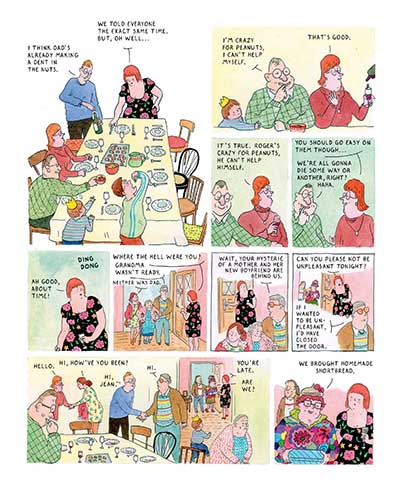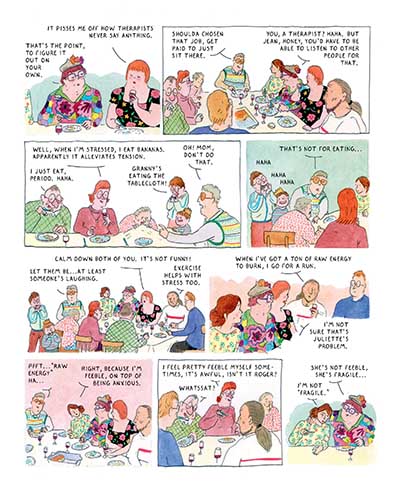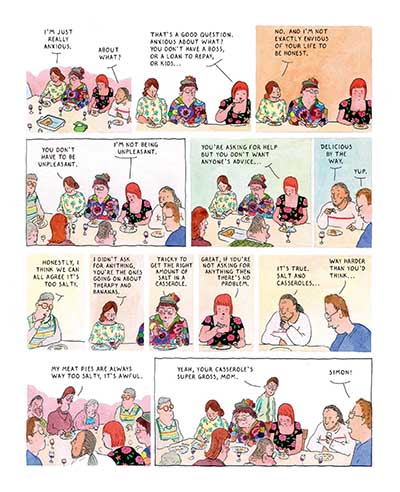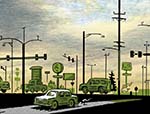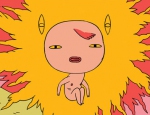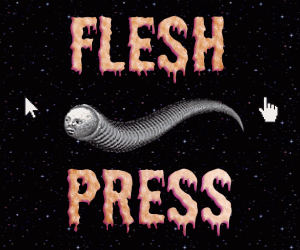Here’s a warning of sorts: one may sigh a lot while reading Juliette by French writer and cartoonist Camille Jourdy, first published in 2016 and newly translated into English by Aleshia Jensen. Some of the sighs may be induced by the sheer beauty of her panels, all lovingly drawn and delicately filled in with colour. At other times, it is the writing that will prove to be particularly moving.
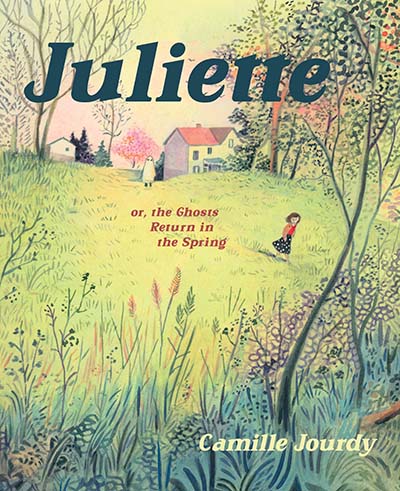
Having said that, it is an undeniable classic from someone who grasps her medium and its potential. It also explains why the novelist Sean Michaels draws interesting parallels between Jourdy and an eclectic trio of artistes. His endorsement on the back cover of this ‘small town story’ lists Flannery O’Connor, Chris Ware, and Henri Matisse — all intriguing, yet strangely apposite comparisons. It’s easy to see, for instance, why Jourdy’s art could remind one of Matisse’s vivid colours and flat surfaces. Then there’s the reference to Ware who, like Jourdy, is often lauded for his meticulous attention to detail, and his emphasis on themes like social isolation.
As for the mention of Flannery O’Connor, it is presumably her use of satire to describe the interior lives of flawed characters that is mirrored in Jourdy’s work; the only difference being that the latter does it with watercolours that compel one to stop and stare, forgetting to turn the page.
This isn’t the kind of book to be read in a single breath, because it burns so slowly. It ought to be savoured in little sips, with her characters and their foibles carefully pored over. Another thing pulled off almost effortlessly is unassuming charm, which won’t come as a surprise to French readers familiar with Jourdy’s earlier work Rosalie Blum, made into a film by Julien Rappeneau. The same ingredients are in place here: quiet wit, mysterious or accidental meetings, and warm humour bordering on the comical.
This time around, her protagonist has left the anxieties of life in Paris for some time off in the town she grew up in. Imagine the kind of place touted as an antidote to big, faceless cities, but also one with its own set of challenges for those who call it home. Juliette is staying with her indifferent father, a divorcee now dabbling with online dating. She is also attempting to reacquaint herself with other family members while coming to terms with why she feels so lost and overwhelmed. Her married sister Marylou is having an affair, her artist mother is attempting to live a life of bohemianism with mixed results, and she runs into a man named Georges who is depressed and almost certainly an alcoholic. Then there is her grandmother, struck down by dementia and condemned to live surrounded by people she no longer recognises. It all makes for anything but a cheerful homecoming.
One of the things that gives Juliette so much of its power is the book’s relatability. There is a universality to its protagonist’s experiences, and Jourdy has a knack of capturing this even while depicting something as mundane as a train journey. Everywhere one looks — the overflowing medicine cabinet at her grandmother’s home, for instance —are careful signs of lived experience, all reproduced faithfully. The overall effect is cumulative, as what we are left with is less a story about heartache or family than an ambience that pervades so much of modern life.
Juliette has the telling subtitle ‘or, the Ghosts Return in the Spring’ which may be a clue to why her deceptively simple tale has such a profound impact. Maybe the ghosts remind us of ourselves, or the people we used to be, and the pasts we can’t always leave behind.
Camille Jourdy (W/A), Aleshia Jensen (T) • Drawn & Quarterly, $29.95
Review by Lindsay Pereira





